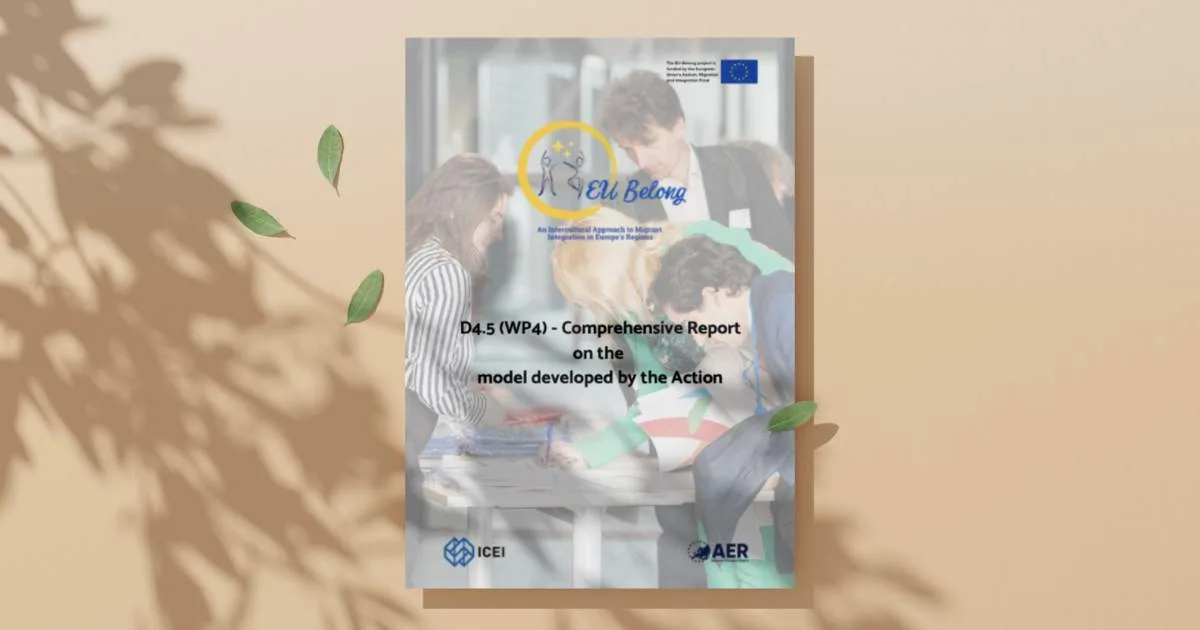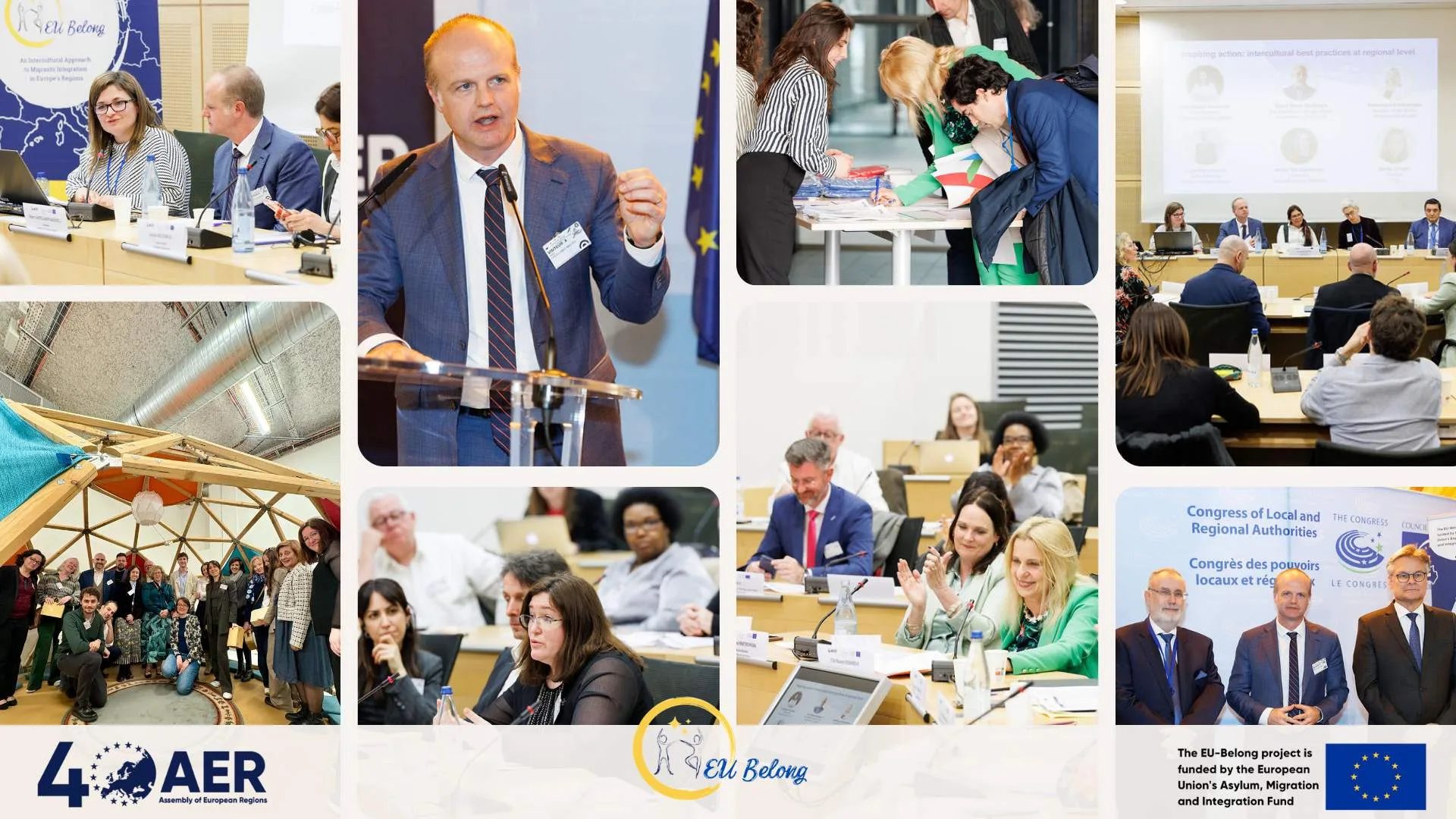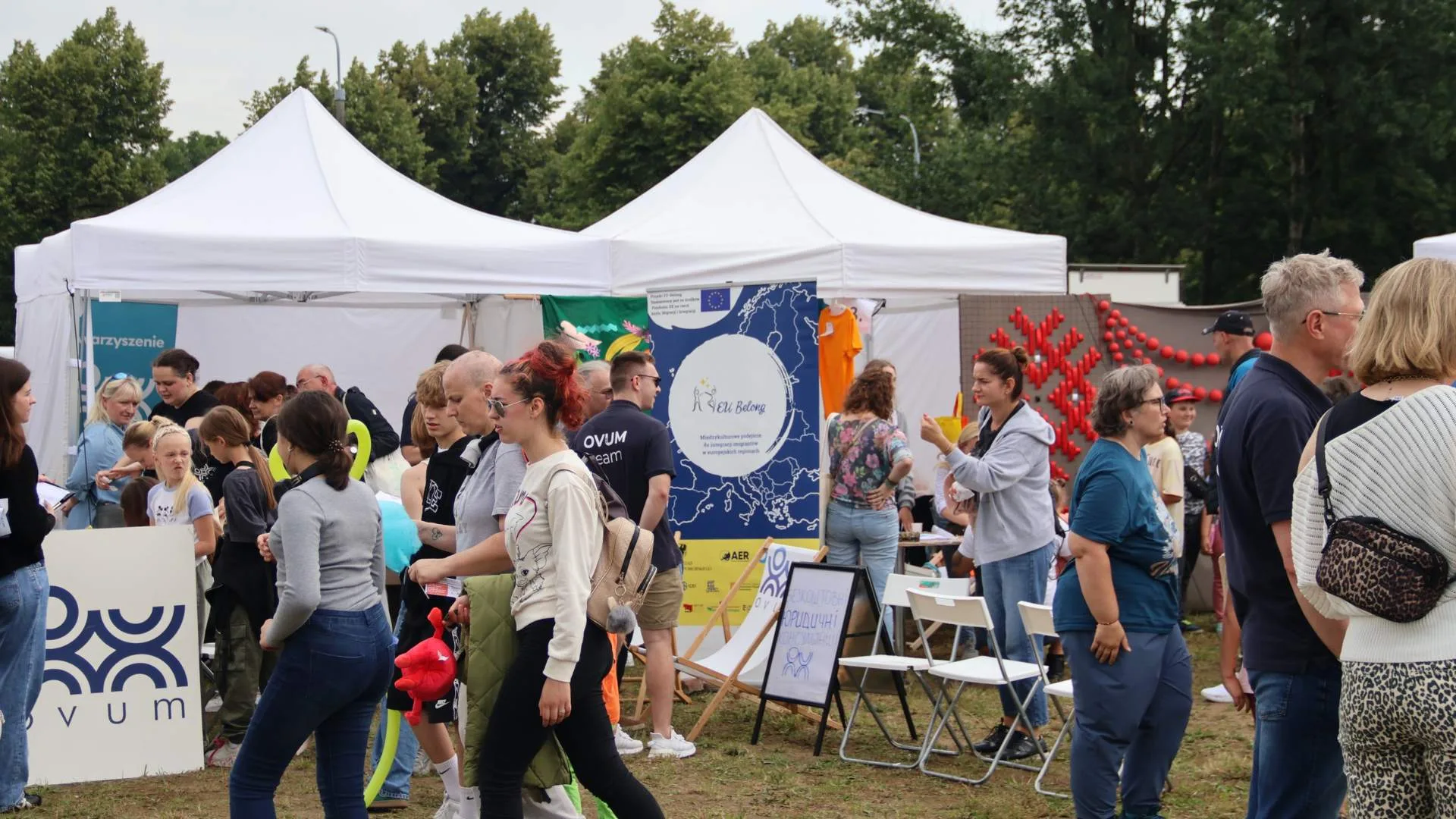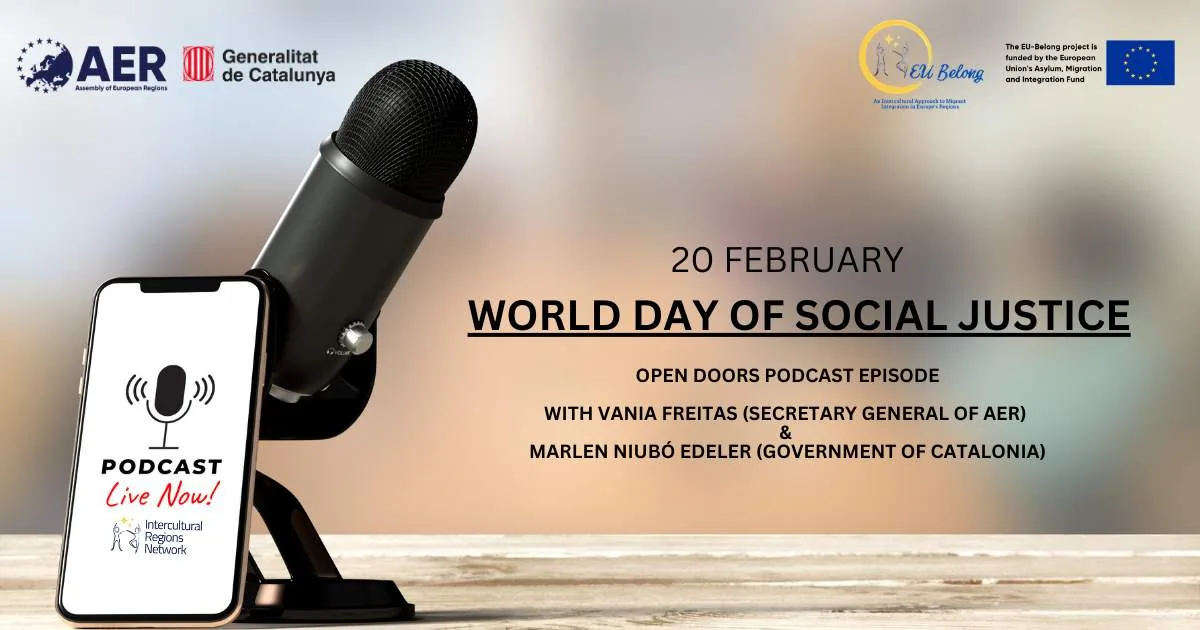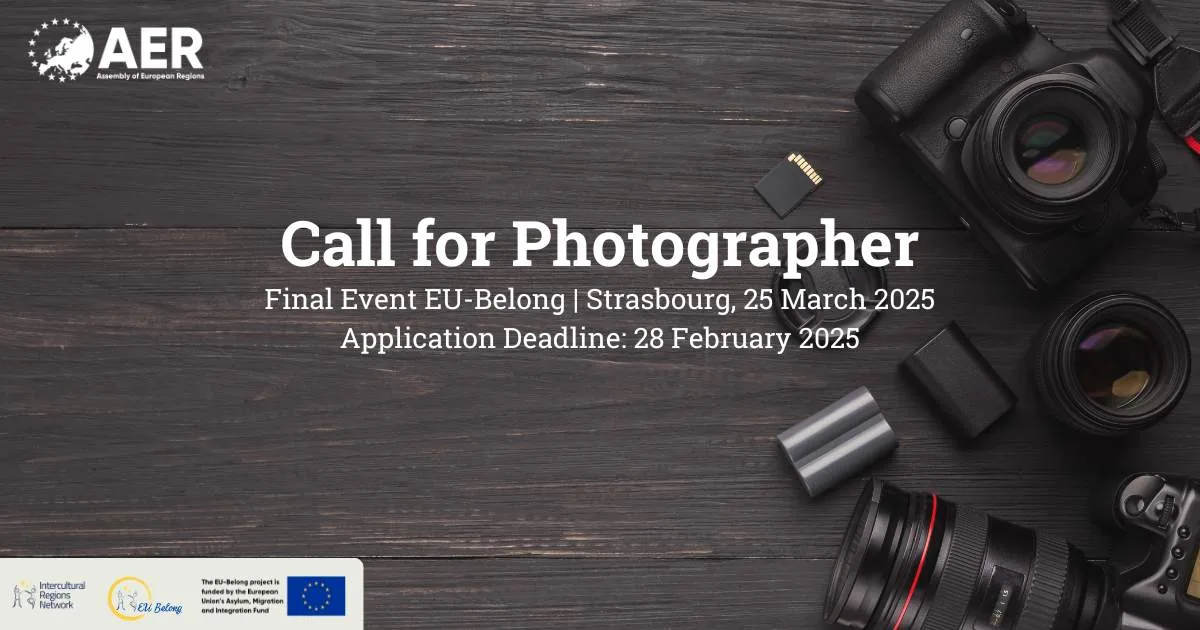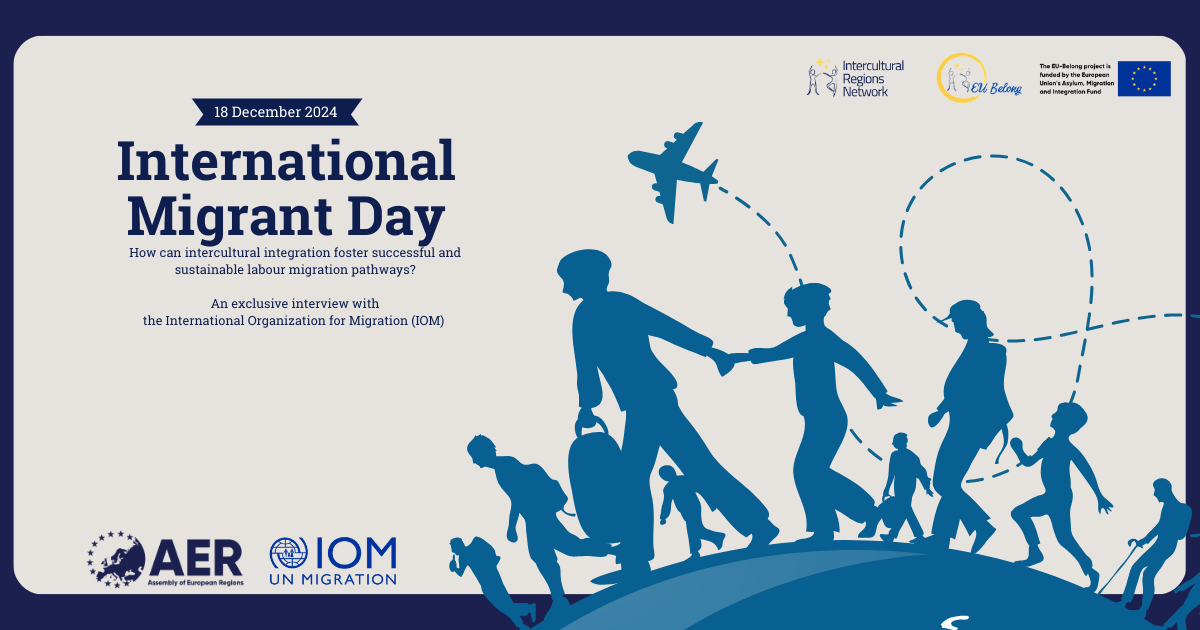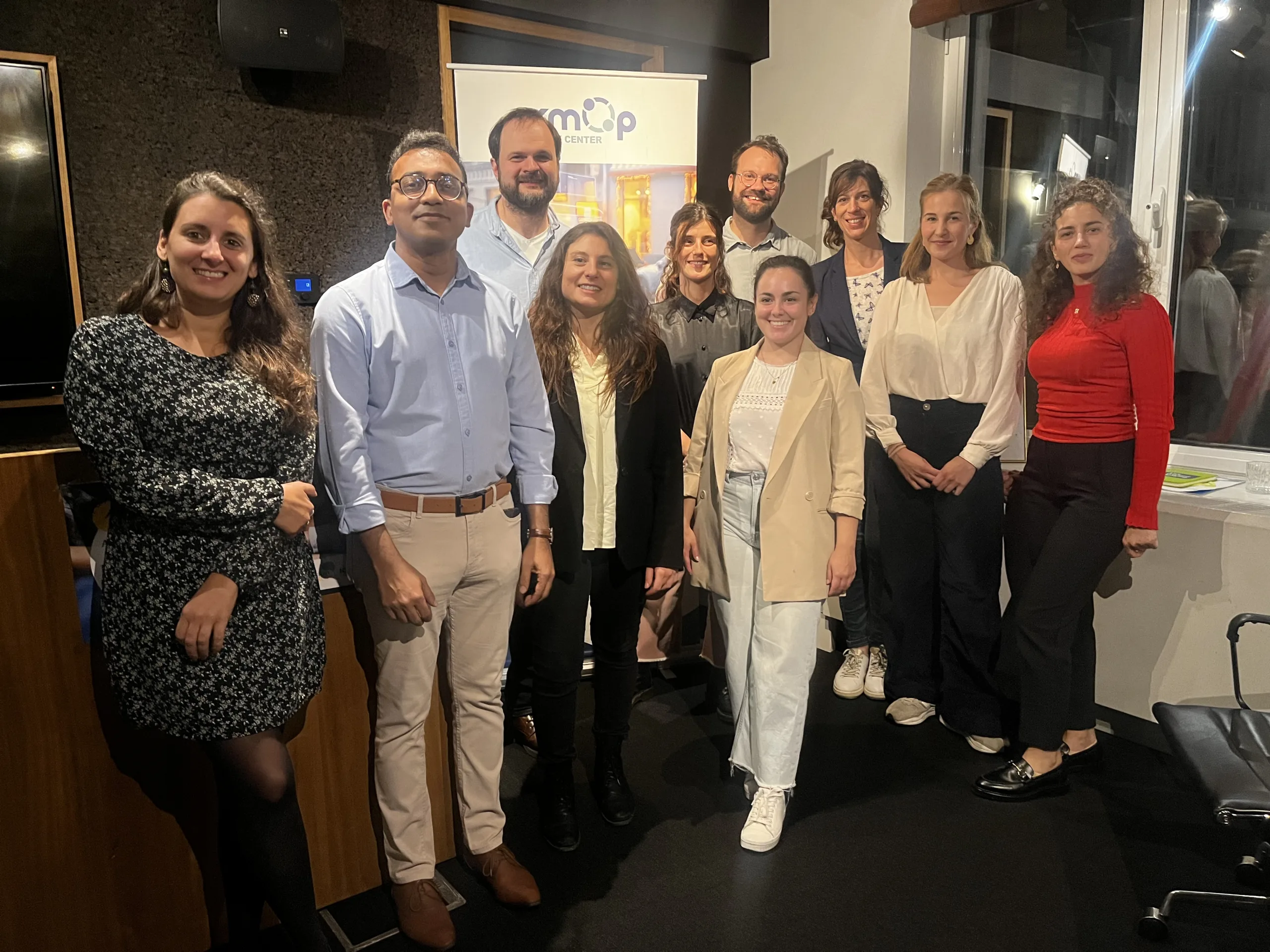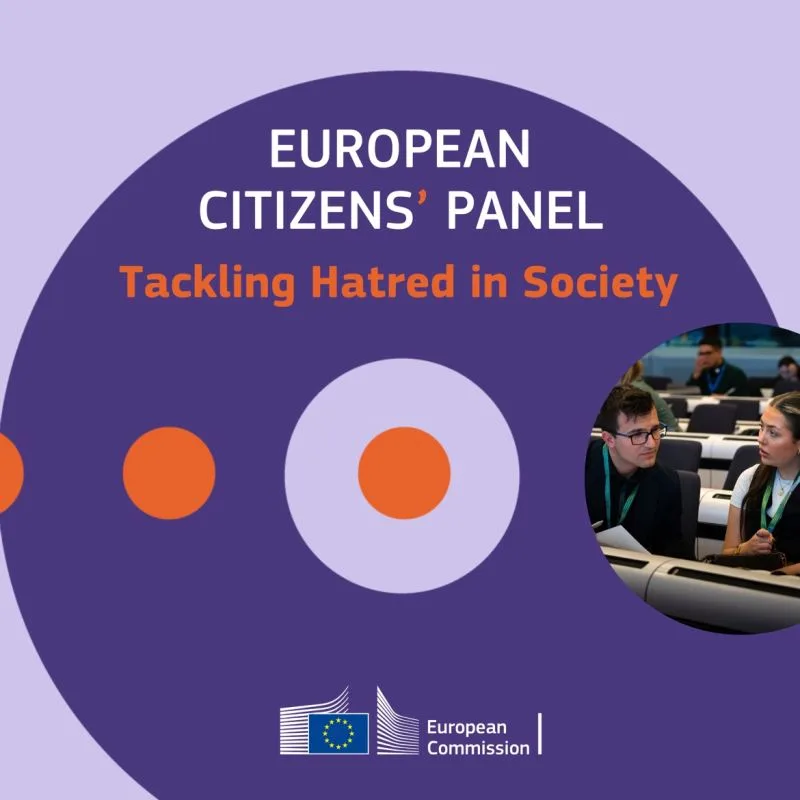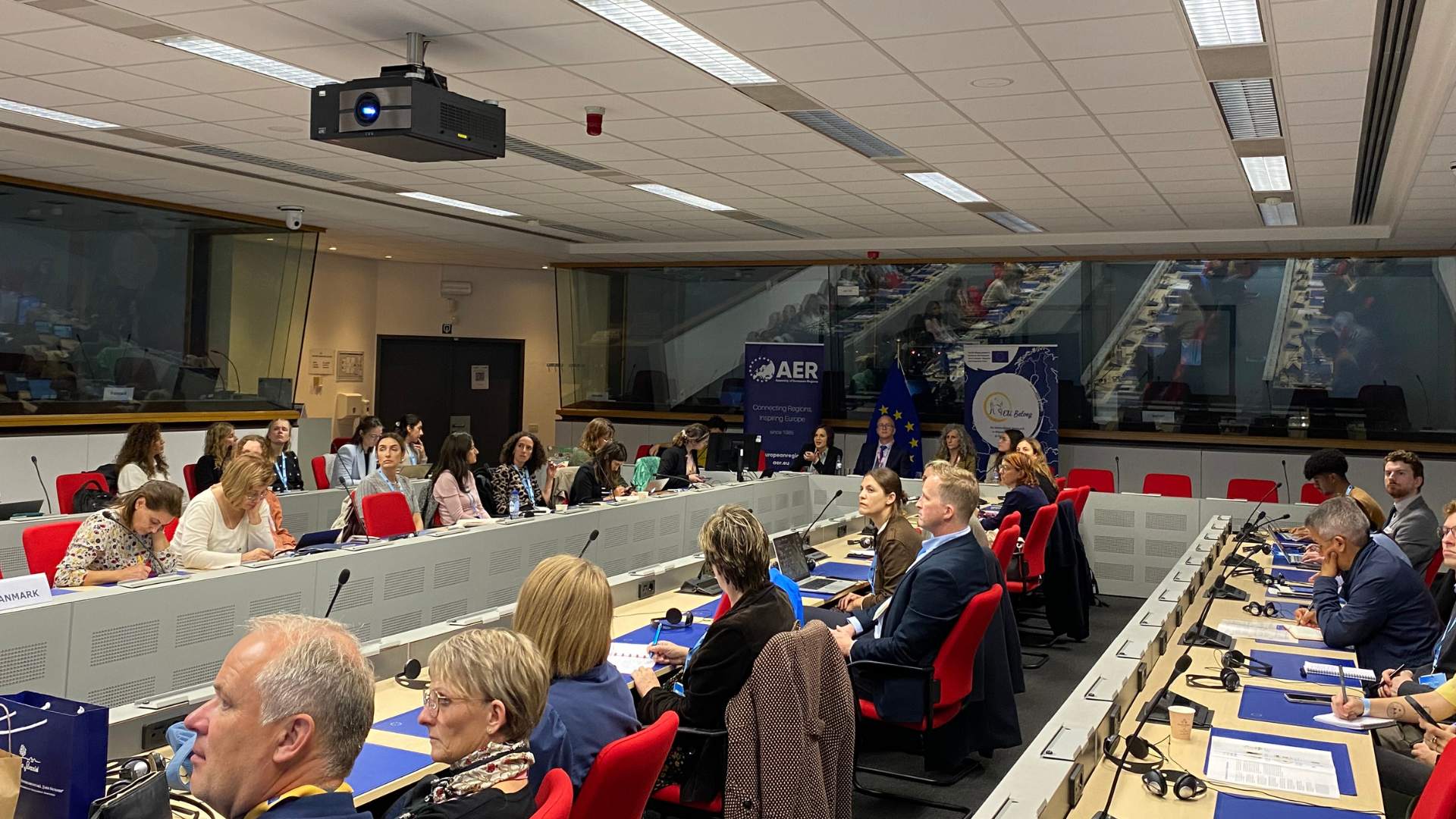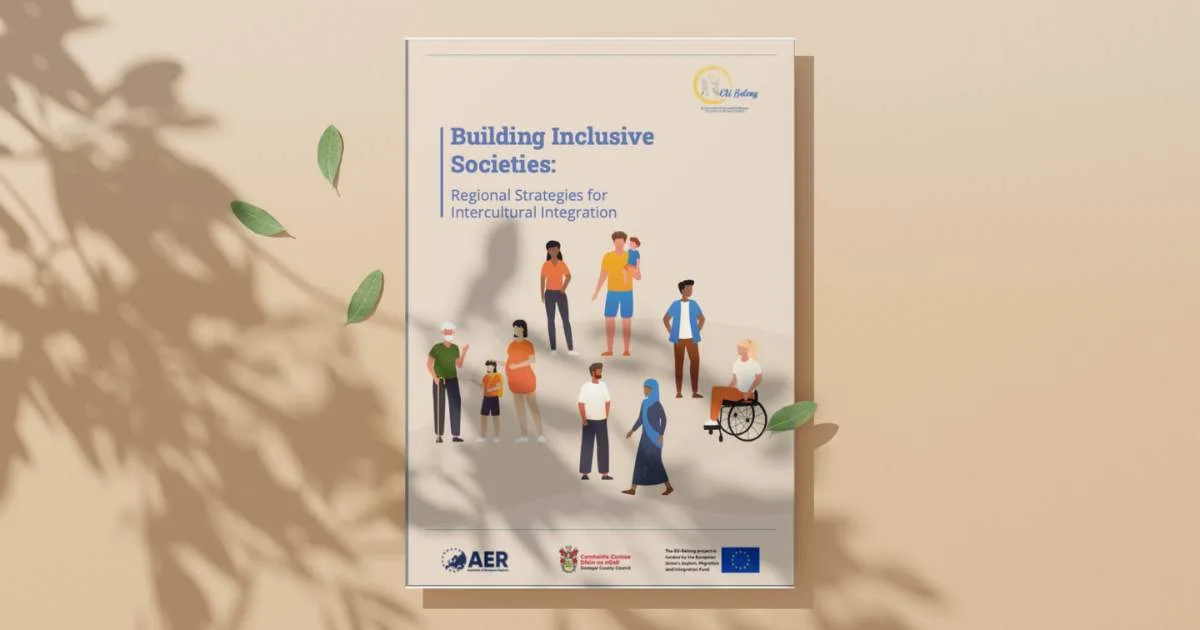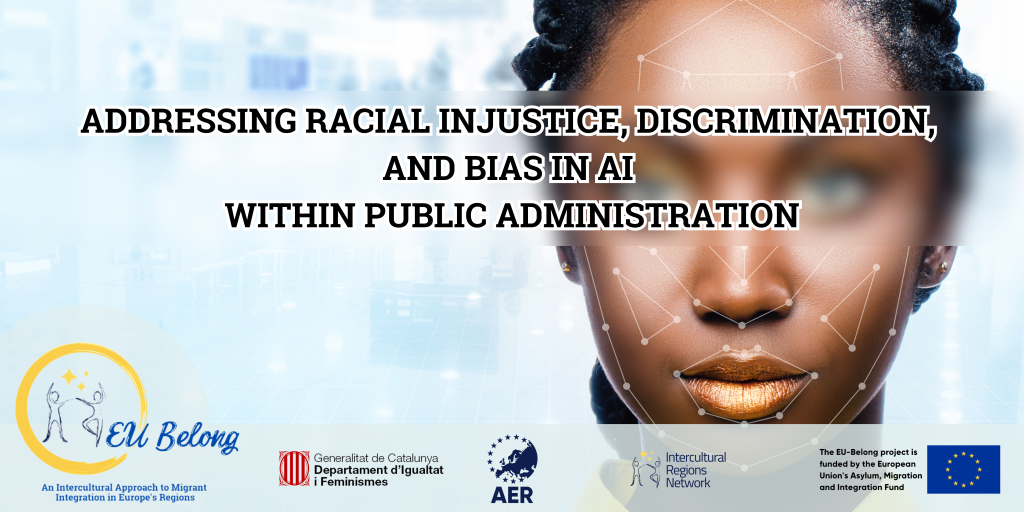[Foto cedida por la Dirección General de Politicas Migratorias del Gobierno de Navarra @autora: Maite Hernandez Mateo]
EU-Belong is a 3-year project run by the Assembly of European Regions (AER) and 12 partners, and co-funded by the AMIF Programme (AMIF-2020-AG-CALL) of the European Union. The project is pioneering the field of inclusion & integration, by using an intercultural approach developed by the Council of Europe to innovate regional policymaking. EU-Belong will showcase how multistakeholder approaches, tailored capacity-building, co-design and transnational mutual-learning leverage regional efforts and generate innovation.
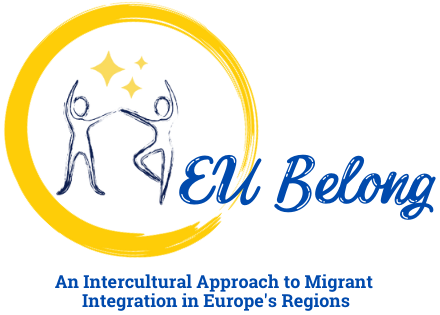
The Intercultural Approach Explained
The intercultural model brings together the principles of Diversity, Equality and Interaction. Interculturalism considers the positive potential of diversity as the starting point and the horizon. It is about making a place for everyone in society. While the assimilationism model overemphasises equality neglecting diversity, and multiculturalism highlights cultural differences, the aim of interculturalism is to realise equality and societal cohesion by building on the diversity that enriches societies.
Interculturalism, recognises the importance of culture in building cohesive communities, accessing rights and realising opportunities.
It emphasises the need to enable each identity to survive and flourish, but also underlines the right of all cultures to contribute to the cultural landscape of the society in which they are present. Interculturalism derives from the understanding that communities thrive only in contact with others through interaction, not in isolation. It seeks to reinforce intercultural interaction as a means of building trust and strengthening the fabric of the community, creating a collective identity that embraces cultural pluralism, human rights, democracy, gender equality, and non-discrimination.
GET INSPIRED
Adopting the Intercultural Approach in Different Policy Areas
The intercultural approach is particularly innovative, and a tool for more cohesive, innovative and resilient societies. The knowledge transfer clusters below facilitate peer learning around common challenges in thematic areas and offer different formats of online and in-person knowledge transfer activities.


